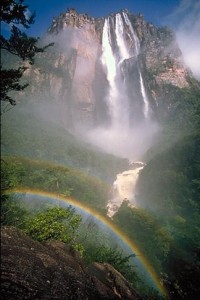“When you leave your house in the morning, you do not know if you will return alive in the evening”. Either in rich suburbs or in poverty-sticken areas, this is a sentence which expresses the fear of the citizens in Caracas, the capital of Venezuela. In 2009 there were 795 kidnappings in Venezuela, a 48% increase from the total reported in 2008. What is more fearful though is that now there are no limits – it does not make a difference if it is a banker like the case of German Garcia Velutini who was kidnapped last February, or children like the case of a little 10 year old girl and a 7 year old boy who were kidnapped in Maracay in November; all are still with their captors.
Caracas is also the third most violent city in the world, after Ciudad Juarez in Mexico and New Orleans in the United States. The rate of homicides in 2008 was 52 persons for every 100 and of these 13 were gunned down. For 2009 the statistics indicate the rate of homicides increased to 56 persons for every 100 inhabitants, and more than 14 persons were murdered.
Such interpersonal violence is a public health issue at a macro level due to social inequality, fewer employment opportunities, loss of values such as religion and intolerance to diversity. At a micro level, a high increase in the number of firearms, alcohol and drug consumption and a continuous angry invitation to violence by the president each time he does his 5 to 6 hour weekly television updates. Social abuse and violence has been taught and rehearsed repeatedly week after week for the last 11 years.
Indeed in 2009, 57 uniformed men were assassinated, 27 of whom were part of the Metropolitan Police. This reveals a high level of corruption and consequent distrust by the population.
Instead, fear makes inhabitants sit motionless in front of the televised parade of bizarre, extreme acts to applaud enemies of democracy and insult kings, queens, presidents and politicians, home invasions and killings while failing to notice the widespread behavioral and personality disorders of the people who run the country which are the real news. Despite this chaos and downward societal sprial, this month the communist party of Venezuela ratified Hugo Chávez as the leader of the socio-political transformation in Venezuela.
We, clinical psychologists, are not allowed in Venezuela to give opinions about his mental status. Until now a fragmented opposition, a paralyzing fear and a lack of awareness to seize the scientific applications to promote change –the same that Hugo Chavez is applying so successfully – has not allowed social mobilization.
Yet there are things Chavez cannot touch. Despite electricity and food shortages and high levels of insecurity, we have the Angel Falls . It is the highest uninterrupted waterfall in the world, 15 times the height of Niagara Falls, with a drop of 3.230 ft originating from the flat top of Auyantepuy into the robust jungles of Guayana.
. It is the highest uninterrupted waterfall in the world, 15 times the height of Niagara Falls, with a drop of 3.230 ft originating from the flat top of Auyantepuy into the robust jungles of Guayana.
You can also take a small plane and go to Los Roques a choral archipelago which consists of many virgin atolls and small islands with white sand and sea and amazing colors in the underwater fauna and flora.
Felicitas Kort is an author and professor of Behavior and Cognitive Therapy in Caracas, Venezuela, Central University. Ms. Kort is a clinical psychologist in the field of behavioral and cognitive therapy in the area of post-traumatic stress disorder, generalized anxiety disorder, panic disorder and mood disorders. She is Chairman of the Board of the Venezuelan Association of Psychotherapy, President of the Venezuelan Association of Behavior Therapy, Venezuela. Ms. Kort conducted a radio program talk show “Habits and Inhabitants” for six years with the purpose of disseminating various disorders in clinical psychology: definitions, treatment and prevention.
Contact Info: Felícitas Kort, Clinical Psychologist Cell: 917-544 9414 ; felicitaskort@gmail.com
One Comment